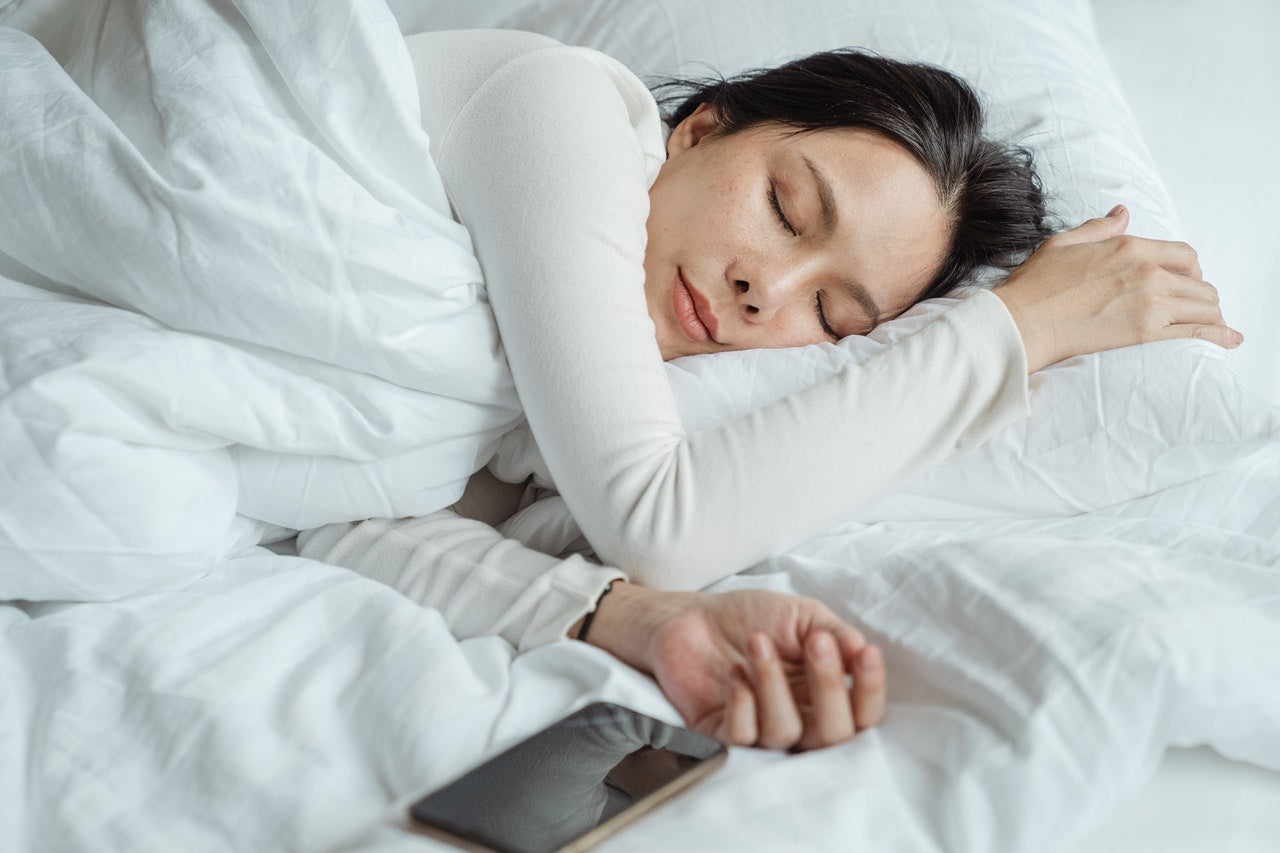
Does Magnesium Really Help With Sleep?
Magnesium, oh how many times I’ve written about it and extolled its benefits.
I’ve written about it a lot, almost too many times (but that’s impossible).
Yes, I love magnesium and I hope you do too.
The reasons why I love it are as plentiful as the ways that magnesium helps support great health (it’s involved in over 300 essential enzymatic processes as a reminder).
Without a doubt I believe it’s a go-to for helping to relax muscles and provide pain relief.
We know it to be critical to helping maintain heart health (magnesium helps your body send the electrical signals that make your heart beat).
But one of the really, really, really, really great reasons to try and get the recommended amount of magnesium is how it helps out with sleep.
I’d like to offer some data about how magnesium helps with sleep and give you directions to do your own research should you like so that after I can direct you to purchase our magnesium malate.
Let’s get into this, and I promise, this article won’t be so boring that it’ll put you to sleep.
Why Magnesium Is Helpful For Sleep
Part of this article uses some data gleaned from Dr. Lantelme’s oldest son, Adam.
Adam obviously cares a great deal about health as his dad’s a physician who’s invested himself seriously in helping improve the lives of those he loves.
For the past 5 months Adam has been wearing a device called a WHOOP strap.
The WHOOP is something you wear continuously and it monitors things like resting heart rate, heart rate variability, breath rate and sleep cycles.
After every sleep (the WHOOP strap can detect sleep automatically, or use Adam’s input) the WHOOP app on his phone asks him a series of questions that he’s chosen to answer to see how it affected his recovery and his sleep.
He answers questions like did you have dairy yesterday, did you take melatonin, did you drink enough water, and more.
Out of the 30 questions he answers (he could select more if they applied to his life), one of them has to do with if he took melatonin, how much he took, and at what time.
And you know what’s crazy.
Whenever he reports taking 200mg of magnesium he gets 6% better “recovery.”
Recovery is a score that uses his previous night’s sleep and his previous day’s physical activity as an aggregate for how well rested he is today, and how ready he is for the day to come.
The data suggests that If he were to take magnesium out of his supplement regimen then he would sleep worse, all other things remaining the same.
That’s pretty interesting, I’m sure you’d agree, and it supports what we see in the scientific literature too.
Consider what the National Sleep Foundation wrote about taking magnesium for better sleep:
“Some evidence shows that magnesium can have a positive effect on sleep. Small studies have found that magnesium supplements may help elderly people fall asleep faster and can also help those with restless legs syndrome log more sleep time. Other research shows that magnesium increases the neurotransmitter GABA in the brain, which is responsible for slowing your thinking down and helping you fall asleep.”
Now, if you had perfect magnesium levels it’s unlikely taking magnesium is going to do anything for you.
That’s because people who experience benefits in terms of better sleep tend to be deficient. Most Americans are deficient, so it might be why we have something of a sleep epidemic here in the U.S.
Animal studies have demonstrated that when subjects retain optimal levels of magnesium in their blood it contributes to healthy sleep. On the other hand, their research showed that if the animals had too much, or too little magnesium, it threw their sleep quality for a loop.
Plus, there are a ton of other things that magnesium can do to help you sleep better
For instance, as I mentioned in the beginning of the article, it helps manage some kinds of pain. If you go to bed aching and in pain, unable to relax, it can give you some fitful nights of non restorative sleep.
Magnesium is a natural muscle relaxant so taking it can help you feel less pain and fall asleep quicker, sleep more deeply, and get longer rest.
And who can argue that any of this is less than ideal?
Plus magnesium has been shown to help your body secrete more melatonin (your body’s main sleep hormone) which can help regulate circadian rhythm and synchronizes sleep-wake cycles. This helps to establish sleep cycles that keep you asleep longer and wake up more refreshed.
Make Sure to Use the Right Magnesium
I believe that whatever you do, taking magnesium is a smart way to help support your health.
For maximum absorption, I recommend Magnesium Malate.
It’s higher bioavailability means that more of the magnesium you take is absorbed into your body so that you can use it for whatever purpose you’ve decided.
If it’s sleep, then you’ll definitely like this as Adam uses the same Magnesium Malate we sell in order to get those sleep results I mentioned earlier.
And, as always, you can rely on our purity and quality.
I hope you find that magnesium helps you sleep better, no matter what you get your magnesium for.




